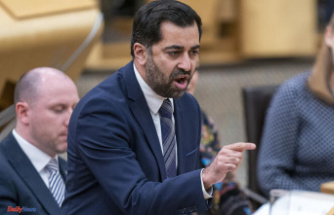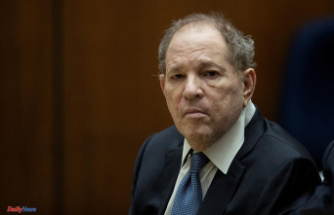In addition to a better error culture in the police, the training of executives in the law enforcement agencies should also be optimised. These are the core demands of the independent commission of experts to reform the Hessian police force.
Wiesbaden (dpa/lhe) - Hesse will start a pilot project in autumn to optimize the selection of junior police officers. The multi-stage selection and qualification process is to be tested in the police headquarters in West Hesse and North Hesse, as Interior Minister Peter Beuth (CDU) told the German Press Agency in Wiesbaden. The pilot project is part of the package of measures that is being implemented by the state on the recommendation of the commission of experts to reform the Hessian police force. In the Ministry of the Interior, the Error and Management Culture unit is responsible for implementation.
"The Hessian police continue to deal intensively with all measures that establish a new error and leadership culture," emphasized the Minister of the Interior. The police show that they are a learning organization that has recognized the opportunity for change and wants to use it. "The considered selection and targeted qualification of future managers should form the stable foundation for a healthy, self-reflective and learning Hessian police force."
The pilot project is supposed to be about the so-called first leadership office. This includes all police officers who are taking on personnel responsibility for the first time. Specifically, according to the ministry, the new steps for selection and qualification are initially at the level of managers who are in daily contact with the police base.
In the process, the junior executives should start with a computer-based assessment of their potential and a skills analysis. In a second step, there is a personal interview with a manager at the responsible police headquarters, who is deliberately not the direct superior. This will be followed by feedback from immediate superiors and colleagues.
The interior minister explained that the systematic procedure should create a fact-based basis for the preliminary selection of future junior executives. This process is followed by a mandatory qualification. The selection process is to be followed by a one-year training and development phase. It provides for a total of nine training modules.
The police union (GdP) welcomed the project. The years of heterogeneous personnel development at the Hessian police meant that different concepts and approaches prevented a homogeneous development, said GdP country head Jens Mohrherr of the German Press Agency. "Future managers are not only needed according to the principles of demographic development, they also have to be developed according to uniform standards."
However, the trade unionist called for sufficient staff to implement the concept and in general for the Hessian police. There is a lot of overtime and a constantly growing burden in the everyday life of the law enforcement officers. If the pilot project is successful and enough staff are deployed, he does not expect the concept to be used on a large scale before 2024.












